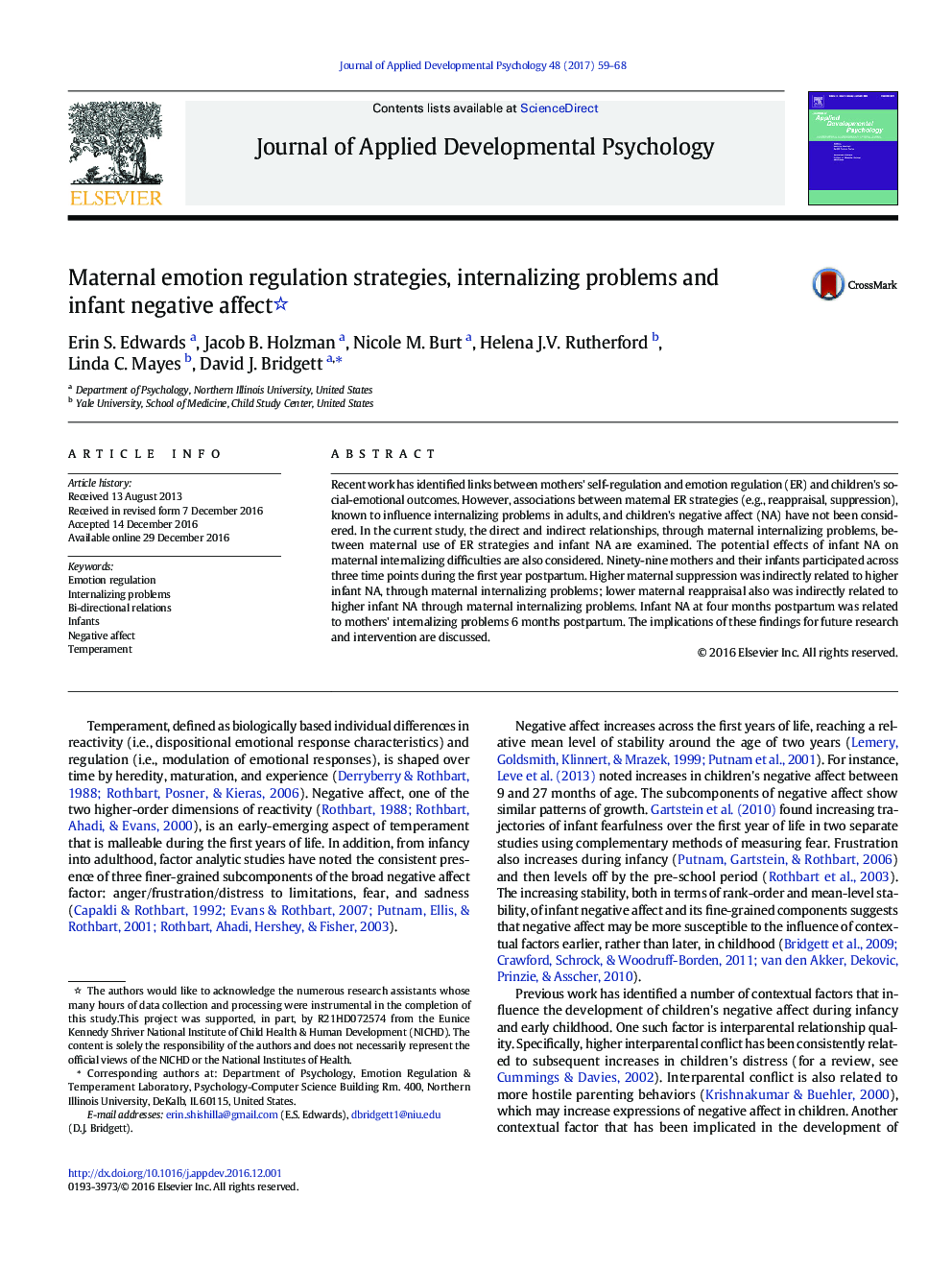| Article ID | Journal | Published Year | Pages | File Type |
|---|---|---|---|---|
| 4939182 | Journal of Applied Developmental Psychology | 2017 | 10 Pages |
â¢Mother's greater use of reappraisal was associated with less infant negative affect (NA).â¢Maternal suppression affected infant NA indirectly via maternal internalizing problems.â¢Maternal internalizing difficulties also mediated the link between maternal reappraisal and infant NA.â¢Earlier child NA was related to subsequent maternal internalizing difficulties.â¢Findings demonstrate the role of maternal emotion regulation strategies on the emergence of early child NA.
Recent work has identified links between mothers' self-regulation and emotion regulation (ER) and children's social-emotional outcomes. However, associations between maternal ER strategies (e.g., reappraisal, suppression), known to influence internalizing problems in adults, and children's negative affect (NA) have not been considered. In the current study, the direct and indirect relationships, through maternal internalizing problems, between maternal use of ER strategies and infant NA are examined. The potential effects of infant NA on maternal internalizing difficulties are also considered. Ninety-nine mothers and their infants participated across three time points during the first year postpartum. Higher maternal suppression was indirectly related to higher infant NA, through maternal internalizing problems; lower maternal reappraisal also was indirectly related to higher infant NA through maternal internalizing problems. Infant NA at four months postpartum was related to mothers' internalizing problems 6Â months postpartum. The implications of these findings for future research and intervention are discussed.
